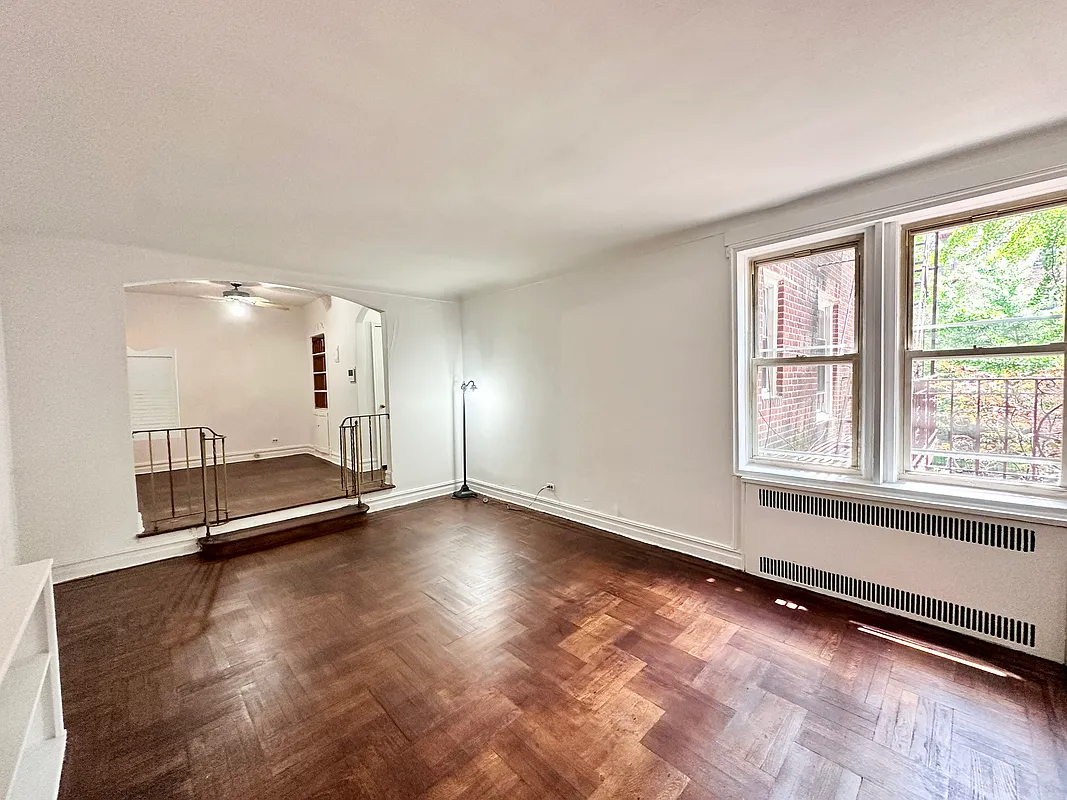HPD: Understaffed, Incompetent or Both?
When you want to convert a house that has been used and classified by the city as a Single Room Occupance (SRO) dwelling, you have to go through a cumbersome process with the Department of Housing Preservation and Development (HPD) designed to protect the rights of SRO residents. Unfortunately, as we found out first hand…


When you want to convert a house that has been used and classified by the city as a Single Room Occupance (SRO) dwelling, you have to go through a cumbersome process with the Department of Housing Preservation and Development (HPD) designed to protect the rights of SRO residents. Unfortunately, as we found out first hand when we converted our house, despite its presumably good intentions, the process is marred by incompetent people and ridiculous bureaucratic hurdles.
HPD’s basic goal is to make sure that a tenant who’s been paying a couple of hundred bucks a month for a room for the last ten or twenty years isn’t booted out in the street. As the owner, you have to fill out a lengthy questionnaire with all the current and former residents’ names and known addresses (even if the house is empty, as ours was when we bought it). Then HPD is supposed to make an effort to contact all these people to make sure they weren’t forced out against their will. In our case, after this mail campaign came up clean, we were told over the phone that everything was fine and we should be getting our Certificate of No Harassment (CNH) within the week. When we called back three weeks later, we found out that HPD had decided to send someone out on foot to try to talk to all the former tenants, thus adding another month to the timeline. At some point in the process, an HPD inspector has to come inspect your house to make sure there are no signs of tenants still living there; at the time (back in late 2004), there was only one inspector for the five boroughs!
The entire process took about four months in our case, but we had the benefit of a friend in city government periodically lobbing in calls to HPD on our behalf. A neighbor of ours in Clinton Hill has not been so lucky. An existing homeowner, he and a partner purchased an SRO in the area in late 2005 and applied to HPD’s SRO unit for a Certificate of No Harassment early in 2006. It was received as of February 15th and they were told by the office it normally takes five to seven months. There was, at the time, one tenant in the building, who has since vacated. After about eight months, he called and was told it was in the “final stages” of the process, was with the attorneys, and should be finished in 30 to 60 days.
After about 75 days, he called again and was told it was in the “final stages” of the process, was with the attorneys, and should be finished in 30 to 60 days. A supervisor told him that it was under investigation and there was nothing further she could say. It’s now been exactly a year, and they are unable to get construction permits due to the delay. Instead, they pay about $8,000 per month in carrying costs and bear the risk of the market going down.
We understand that city wants to make sure that poor people aren’t just kicked to the curb by greedy landlords, but it is not doing an adequate job of balancing the interests of the property owners, who in most cases are not deep-pocketed developers but mom-and-pops trying either to create a home for themselves or to fix up a small rental property. In our case, the people HPD were supposedly watching out for were mostly drug dealers and thugs, which perhaps explains why they ultimately weren’t able to track any of them down. To throw up such impediments to upgrading the housing stock (in most cases, these buildings are some of the most run-down on the block) seems crazy. As we suggested when we first wrote about this on our reno blog, HPD should drastically increase the CNH application fee and staff up so that it can do a responsible job of processing the applications in a timely manner.
Certificate on No Harassment, Finally! [Brownstoner Reno Blog]





“impediments to upgrading the housing stock (in most cases, these buildings are some of the most run-down on the block”
Maybe in Brooklyn in the case, but this law is CRUCIAL in protecting many innocent tenants throughout the city.
“We understand that city wants to make sure that poor people aren’t just kicked to the curb by greedy landlords, but it is not doing an adequate job of balancing the interests of the property owners, who in most cases are not deep-pocketed developers but mom-and-pops trying either to create a home for themselves or to fix up a small rental property”
This is actually not true, city-wide, the overwhelming majority of people who apply for a CNH come from greedy landlords or developers, who have a history of harassing tenants and will do anything to get people out. THis law protects people. There are more SRO tenants than SRO landlords so I think the benefits far outway the negatives.
West Side SRO Law Project
If the city had actual competent people working for it, they could do the job with like 20% of the staff they have. Between union rules and pensions after 20 years, these people probably do an equivilent of a year of actual work their entire career.
I’m sympathetic to those who say “You got a bargain, that’s part of the deal”. (Or similarly, “You should have known what you were getting in to and made sure you got a bargain.”)
But even without considering anyone’s personal desire, this is just a malfunctioning system that taxes us all.
Sellers have to accept much lower values for their SRO properties than what they’d be worth if this system was more streamlined: not only do buyers have to pay the costs of carrying the building while getting a CNH, but who wants to buy a run-down building where you’ll have to wait a year before you can even start renovating it?
Buyers have to go through an unnecessary headache and will either avoid the properties or require the sellers to give them a bug discount to justify the pain and cost.
Neighbors have to live with an empty shell of a rundown building for a year longer than necessary, which makes a neighborhood less attractive, livable, and comfortable. Such empty buildings also depress nearby property values.
I don’t see anyone this system benefits other than its perpetrators. It should be possible for a streamlined system to protect SRO residents from harassment without imposing such a huge cost.
thanks.
we applied at the end of 2006 and for us they came in only six weeks and called a couple of days ahead to set the appointment…but i’m surprised that DOB has to come out now….
…checking out tenants for 3 years before the date of the application is required by the law…
Did they at least call to confirm the visit or did they just show up at your door?
I also hear that only the past 3 yrs are investigated. Is that true?
Hey, 12:41 — sorry to poo on your parade, but I should warn you not to get too excited about having an inspector show up.
I bought an SRO in January 2006, and had an appointment about three months after application. “Wow,” I said to myself (I have a problem with talking to myself) “this is way faster than people told me it would be.”
Then the the months passed. To save a lot of typing and annoying whining, my CNH showed up on October 17th. Ten months later.
I’m not complaining, but it’s a long process and the problem (as I was told — and I believe) is the speed in which the bureaucratic part of the process (the checking on references, lawyers examining the documents, etc) is where the system gets really slow.
In short: it’s a 9-10 month process. Goo dluck
Hey, 12:41 — sorry to poo on your parade, but I should warn you not to get too excited about having an inspector show up.
I bought an SRO in January 2006, and had an appointment about three months after application. “Wow,” I said to myself (I have a problem with talking to myself) “this is way faster than people told me it would be.”
Then the the months passed. To save a lot of typing and annoying whining, my CNH showed up on October 17th. Ten months later.
I’m not complaining, but it’s a long process and the problem (as I was told — and I believe) is the speed in which the bureaucratic part of the process (the checking on references, lawyers examining the documents, etc) is where the system gets really slow.
In short: it’s a 9-10 month process. Goo dluck
how did you actually go about tracking down the ex-residents?